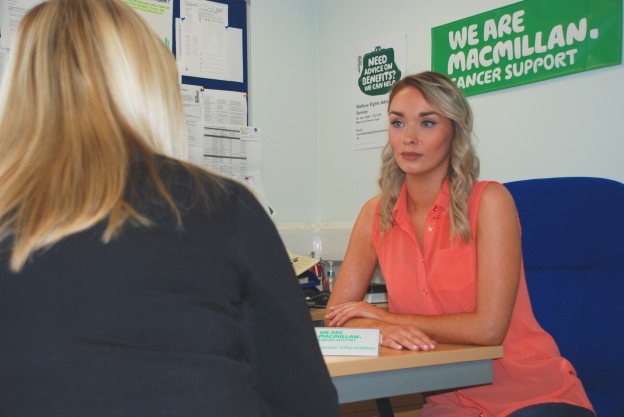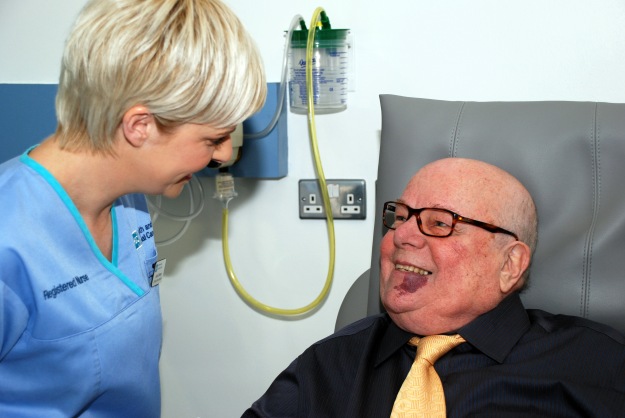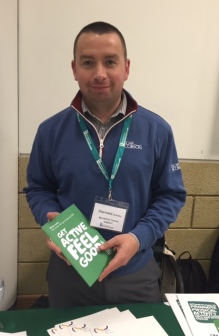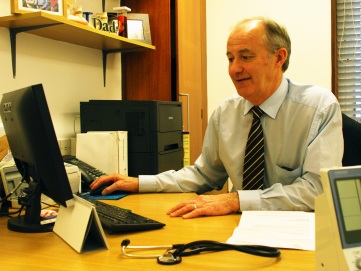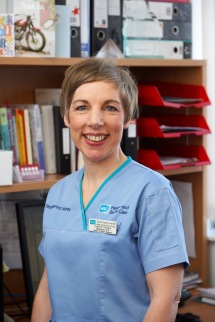Tara Boyle is the Macmillan Capital Project Manager for the new health and wellbeing campus at Altnagelvin, incorporating the new Macmillan Support Centre.
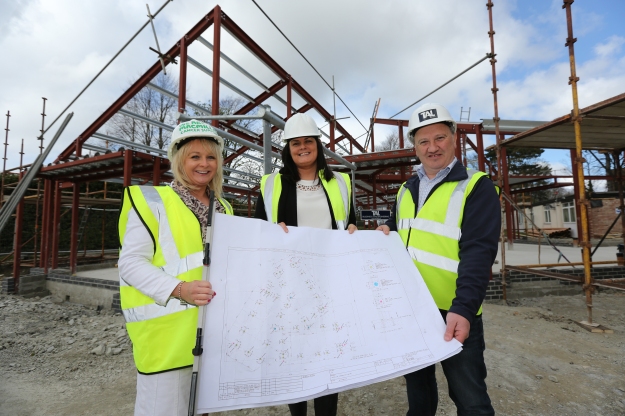
(Pictured L-R: Macmillan’s Paula Kealey, Tara Boyle and Andy from TAL).
It’s exciting times at Altnagelvin because the roof is on and the new Macmillan Support Centre is really taking shape.
As the Capital Project Manager, I’ve been working closely with the Macmillan design team right from the word go. I’m responsible for keeping everything within budget and on schedule so I spend a lot of my time monitoring progress on site in my hard hat and checking in with Andy and the construction crew from TAL.
The new health and wellbeing campus is being built on the perimeter of the Altnagelvin hospital site and will incorporate Agnes Jones House, a beautiful turn-of-the century building. Thanks to the Western Health and Social Care Trust, Agnes Jones is being refurbished and will house facilities for people with long term conditions. The two buildings, old and new, will be linked by a landscaped courtyard.
The new campus – the first of its kind in Northern Ireland – is still a building site and very much a work in progress. No sign of a garden yet. But you can take a virtual tour by viewing our digital fly through here.
Visitors to the Macmillan Support Centre will enter into a bright, welcoming and relaxing environment. The central reception area will provide easy access to all the facilities.
There will be a library leading into a large communal lounge, which has access to an outdoor space – offering privacy and calm.
In addition to bright and open public spaces, there will be a dedicated suite of rooms where individuals can receive counselling, benefits advice, wig and prosthesis fitting, or complementary therapies.
And we’ve made sure there’s a larger room for group activities such as art therapy, gentle exercise classes, support group meetings and training sessions for volunteers and staff.
The Macmillan Support Centre has been designed with input from people affected by cancer. I really feel privileged to be doing this job because I know the real difference that the centre and new campus will make to the lives of people affected by cancer and other long term conditions.
It’s been fascinating to be part of every stage of development – from the drawing board to the construction site.
I can’t wait for the finished product and to welcome visitors through those doors.



